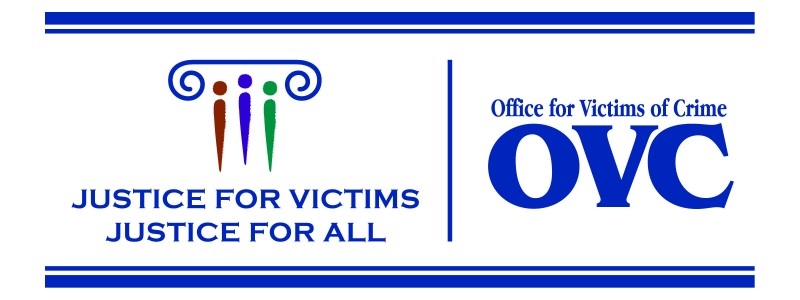
SCARS Institute’s Encyclopedia of Scams™ Published Continuously for 25 Years

Financial Fraud Crime Victims & the United States Department of Justice U.S. Attorney’s Role
As the victim of a federal fraud crime, you may suffer financial and emotional harm and even medical problems relating to your victimization. And you are not alone. Millions of people in the United States are victims of fraud crimes each year.
THE EMOTIONAL IMPACT OF FRAUD VICTIMIZATION
Fraud crime is a personal violation. Your trust in your own judgment, and your trust in others, is often shattered. You may feel a sense of betrayal, especially if the perpetrator is someone you know. You may have hesitated to tell family members, friends, or colleagues about your victimization for fear of criticism. If they then were exploited by the same fraud, you might feel guilty and suffer a sense of isolation.
Fraud crimes can destroy your financial security and sometimes that of your loved ones. If you are elderly, disabled, or on a fixed income – and you lack opportunities to recover your losses – you may face additional trauma, even the loss of your independence.
You may experience feelings about:
- Yourself. That old saying, “Hindsight is 20-20,” is never more true than in financial fraud crimes. Many victims believe they should have known or recognized what was going on, or blame themselves for being too trusting or naive.
- The fraud criminal for taking financial advantage of you, betraying your trust, and jeopardizing your financial independence and security
- Your family, friends and colleagues for blaming you, being upset over what they perceive as your lack of judgment, or withdrawing financial or emotional support.
- The investigative and prosecutorial phases of the justice process, especially in cases that progress slowly or do not result in financial outcomes favorable to you.
- The news media for failing to warn the public about fraud schemes or for exploiting victims when fraud crimes are reported.
- Consumer protection agencies for failing to protect your interests.
- Creditors who don’t understand your dire financial circumstances.
- Community, state and federal agencies if their resources are limited or they do not have the authority to help you.
GENERAL INFORMATION ABOUT FRAUD VICTIMIZATION
What is fraud?
Fraud occurs when a person or business intentionally deceives another with promises of goods, services, or financial benefits that do not exist, were never intended to be provided, or were misrepresented. Typically, victims give money but never receive what they paid for.
Who are the victims of fraud?
Virtually anyone can fall prey to fraudulent crimes. Con artists do not pass over anyone due to such factors as a person’s age, finances, educational level, gender, race, culture, ability, or geographic location. In fact, fraud perpetrators often target certain groups based on these factors.
Why are fraud crimes under-reported?
Although fraud victims are not alone, they often suffer their losses alone and in silence. Shame, guilty, embarrassment, and disbelief are among the reasons that only an estimated 15 percent of the nation’s fraud victims report their crimes to law enforcement. Other reasons include victims’ doubt about their own judgment, a sense of betrayal, and fears about how their family members, friends, and business associates will react. Some victims feel their losses are not large enough to report, do not want to get involved, think law enforcement agencies will not take the crime seriously, or think nothing will result from reporting the crime. Many victims feel they only have themselves to blame, when in reality, calculating, skilled perpetrators are to blame for these criminal acts.
Who commits fraud crimes?
Like their victims, fraud criminals vary educationally, socially, geographically, and financially. Most con-artists make a career of their criminal activities. Some even join professional organizations to legitimize their schemes and project a respectable front.
What makes your case a federal matter?
Fraud crimes can be prosecuted at either the state or federal level, depending on a number of factors:
- Type of fraud scheme and amount of money stolen
- Laws violated (federal, state or both)
- Method of operation
- Use of public services (such as the U.S. Postal Service, Telecommunication systems, and Medicare) that fall under federal or state regulation and authority
- Location of the crime (within a state or across state or national borders)
- What are some common types of fraud?
The weapon of choice for fraud criminals is not a gun or a knife. Rather, it is most often a telephone, letter, glossy publication, or brochure offering free vacations, merchandise, investment opportunities, or services. Not all frauds involve the direct selling of goods to consumers. Some frauds target institutions or businesses. Examples include:
- Telemarketing fraud (telephone solicitation for phony goods or services)
- Mail fraud
- Health care and insurance fraud
- Pension and trust fund fraud
- Credit card and check fraud (including fraud by impersonation resulting from theft of mail or credit cards)
- Identity theft
- Fraud related to securities, commodities, and other investments
- Bank fraud
- Embezzlement
- Pyramid or Ponzi schemes
- Advance fee schemes (419)
- Internet fraud
What kind of documentation do I need to have regarding my case?
In addition to providing written and oral information about the case, you will be required to show documentation of your financial losses. You should save all paperwork relating to the crime, including such items as letters of solicitation, prospectuses, canceled checks, cash receipts, receipts for cashier’s checks or money orders, bank statements, investment statements, or medical statements. If your case proceeds to trial and a conviction is secured, the judge will need this documentation to determine whether the offender will be ordered to pay restitution for your losses.
Does the U.S. Attorney’s Office offer any services to assist victims?
Yes, there are many services provided by our office to assist you if you are a victim of a crime. The staff of the Victim-Witness Program will work to become aware of your needs, feelings and concerns, and to answer questions you may have about participating in the case.
ONLY FOR U.S. CITIZENS AND RESIDENTS
TO REACH A U.S. ATTORNEY’S OFFICE: https://www.justice.gov/usao/find-your-united-states-attorney
REQUESTING RESTITUTION
In federal court, a convicted offender may be ordered to reimburse victims for financial losses incurred due to the offender’s crime. This reimbursement is called “restitution,” and it may be ordered for lost income, property damage, counseling, medical expenses, funeral costs or other financial costs directly related to the crime.
Some financial losses are not eligible for restitution, such as state or federal taxes, interest, penalties or fines; expenses for private legal representation relating to personal or business legal issues raised by the crime; fees for tax advisors, accountants, or other professionals; and legal expenses for the civil recovery of financial losses. Losses for “pain & suffering” are also not eligible for restitution.
To determine the amount of restitution to be ordered, the U.S. Probation Office gathers financial loss information from the investigative agent(s), the AUSA and victims prior to sentencing. Often this information is obtained by having the victims complete a “Victim Impact Statement.” If you would like to complete a victim impact statement, please contact the Victim-Witness Program staff. A court may also decline to order restitution if it finds that determining restitution in a case is too complex.
At sentencing, the judge then enters an “Order for Restitution,” directing the offender to reimburse victims for some or all of the offense-related financial losses. Compliance with the Order of Restitution automatically becomes a condition of the offender’s probation or supervised release. However, even before the offender is released from prison, he or she is encouraged to begin repaying restitution by participating in the Inmate Financial Responsibility Program. Through this program, a percentage of the inmate’s prison wages is applied to his or her restitution obligations.
Even if restitution is ordered, how likely is it I will receive any money?
The U.S. Attorney’s Office Financial Litigation Unit (FLU) is charged with enforcing orders of restitution, and monitors efforts in enforcing a Judgment if defendant assets or income are identified. FLU will pursue various means to enforce restitution, as its resources permit, on behalf of identified victims for 20 years from the filing date of the Judgment, plus the time period of actual incarceration, or until death of the defendant. In addition, while a defendant is under the supervision of a probation officer, that probation officer will also monitor and ensure appropriate restitution is paid, where possible.
Realistically, however, the chance of full recovery is very low. Many defendants have already spent the money that they stole, and will not have sufficient assets to repay their victims. Many defendants owe very large amounts of restitution to a large number of victims. In federal cases, restitution in the hundreds of thousands or millions of dollars is not unusual. While defendants may make partial payments toward the full restitution owed, it is rare that defendants are able to fully pay the entire restitution amount owed.
What else can I do about my financial loss?
Some losses are tax deductible. Because tax laws are complicated and our office cannot offer tax advice, consult a qualified tax advisor or the Internal Revenue Service to see if your losses qualify.
If you believe the fraud perpetrator has assets, you may be able to recover some losses through a civil lawsuit. Contact your state or local bar association for the names of attorneys who specialize in this area of law to determine if your case is appropriate for civil action.
What can I do to address financial or credit problems?
If your losses were severe and you are unable to meet your financial obligations, or if your identity was stolen as part of the crime, your credit rating may be affected. Consider some of these options:
Contact your creditors immediately. Creditors will often work with you to reduce or modify your payments.
Consult a nonprofit consumer credit counseling service, which may be able to negotiate new payment arrangements or consolidate or reduce payments or interest.
Contact your local or national credit reporting agencies about your victimization.
National Credit Reporting Agencies
- Equifax Credit Information Services
Consumer Fraud Division
P.O. Box 105069
Atlanta, GA 30348
(800) 525-6285
www.equifax.com - Experian
National Consumer Assistance
P.O. Box 1017
Allen, TX 75013
(888) 397-3742
www.experian.com - Transunion
Fraud Victim Assistance Department
P.O. Box 6790
Fullerton, CA 92834
(800) 680-7289
www.transunion.com
To report the fraudulent use of your checks:
- Check Rite (800) 766-2748
- Equifax-Telecredit (800) 437-5120
- NPC (800) 526-5380
- Tele-Check (800) 366-2425
- Chex Systems (800) 328-5121
Please Note:
The Society fo Citizens Against Romance Scams



-/ 30 /-
What do you think about this?
Please share your thoughts in a comment below!
Table of Contents
LEAVE A COMMENT?
Recent Comments
On Other Articles
- Arwyn Lautenschlager on Love Bombing And How Romance Scam Victims Are Forced To Feel: “I was love bombed to the point that I would do just about anything for the scammer(s). I was told…” Feb 11, 14:24
- on Dani Daniels (Kira Lee Orsag): Another Scammer’s Favorite: “You provide a valuable service! I wish more people knew about it!” Feb 10, 15:05
- on Danielle Delaunay/Danielle Genevieve – Stolen Identity/Stolen Photos – Impersonation Victim UPDATED 2024: “We highly recommend that you simply turn away form the scam and scammers, and focus on the development of a…” Feb 4, 19:47
- on The Art Of Deception: The Fundamental Principals Of Successful Deceptions – 2024: “I experienced many of the deceptive tactics that romance scammers use. I was told various stories of hardship and why…” Feb 4, 15:27
- on Danielle Delaunay/Danielle Genevieve – Stolen Identity/Stolen Photos – Impersonation Victim UPDATED 2024: “Yes, I’m in that exact situation also. “Danielle” has seriously scammed me for 3 years now. “She” (he) doesn’t know…” Feb 4, 14:58
- on An Essay on Justice and Money Recovery – 2026: “you are so right I accidentally clicked on online justice I signed an agreement for 12k upfront but cd only…” Feb 3, 08:16
- on The SCARS Institute Top 50 Celebrity Impersonation Scams – 2025: “Quora has had visits from scammers pretending to be Keanu Reeves and Paul McCartney in 2025 and 2026.” Jan 27, 17:45
- on Scam Victims Should Limit Their Exposure To Scam News & Scammer Photos: “I used to look at scammers photos all the time; however, I don’t feel the need to do it anymore.…” Jan 26, 23:19
- on After A Scam, No One Can Tell You How You Will React: “This article was very informative, my scams happened 5 years ago; however, l do remember several of those emotions and/or…” Jan 23, 17:17
- on Situational Awareness and How Trauma Makes Scam Victims Less Safe – 2024: “I need to be more observant and I am practicing situational awareness. I’m saving this article to remind me of…” Jan 21, 22:55
ARTICLE META
Important Information for New Scam Victims
- Please visit www.ScamVictimsSupport.org – a SCARS Website for New Scam Victims & Sextortion Victims
- Enroll in FREE SCARS Scam Survivor’s School now at www.SCARSeducation.org
- Please visit www.ScamPsychology.org – to more fully understand the psychological concepts involved in scams and scam victim recovery
If you are looking for local trauma counselors please visit counseling.AgainstScams.org or join SCARS for our counseling/therapy benefit: membership.AgainstScams.org
If you need to speak with someone now, you can dial 988 or find phone numbers for crisis hotlines all around the world here: www.opencounseling.com/suicide-hotlines
A Note About Labeling!
We often use the term ‘scam victim’ in our articles, but this is a convenience to help those searching for information in search engines like Google. It is just a convenience and has no deeper meaning. If you have come through such an experience, YOU are a Survivor! It was not your fault. You are not alone! Axios!
A Question of Trust
At the SCARS Institute, we invite you to do your own research on the topics we speak about and publish, Our team investigates the subject being discussed, especially when it comes to understanding the scam victims-survivors experience. You can do Google searches but in many cases, you will have to wade through scientific papers and studies. However, remember that biases and perspectives matter and influence the outcome. Regardless, we encourage you to explore these topics as thoroughly as you can for your own awareness.
Statement About Victim Blaming
SCARS Institute articles examine different aspects of the scam victim experience, as well as those who may have been secondary victims. This work focuses on understanding victimization through the science of victimology, including common psychological and behavioral responses. The purpose is to help victims and survivors understand why these crimes occurred, reduce shame and self-blame, strengthen recovery programs and victim opportunities, and lower the risk of future victimization.
At times, these discussions may sound uncomfortable, overwhelming, or may be mistaken for blame. They are not. Scam victims are never blamed. Our goal is to explain the mechanisms of deception and the human responses that scammers exploit, and the processes that occur after the scam ends, so victims can better understand what happened to them and why it felt convincing at the time, and what the path looks like going forward.
Articles that address the psychology, neurology, physiology, and other characteristics of scams and the victim experience recognize that all people share cognitive and emotional traits that can be manipulated under the right conditions. These characteristics are not flaws. They are normal human functions that criminals deliberately exploit. Victims typically have little awareness of these mechanisms while a scam is unfolding and a very limited ability to control them. Awareness often comes only after the harm has occurred.
By explaining these processes, these articles help victims make sense of their experiences, understand common post-scam reactions, and identify ways to protect themselves moving forward. This knowledge supports recovery by replacing confusion and self-blame with clarity, context, and self-compassion.
Additional educational material on these topics is available at ScamPsychology.org – ScamsNOW.com and other SCARS Institute websites.
Psychology Disclaimer:
All articles about psychology and the human brain on this website are for information & education only
The information provided in this article is intended for educational and self-help purposes only and should not be construed as a substitute for professional therapy or counseling.
While any self-help techniques outlined herein may be beneficial for scam victims seeking to recover from their experience and move towards recovery, it is important to consult with a qualified mental health professional before initiating any course of action. Each individual’s experience and needs are unique, and what works for one person may not be suitable for another.
Additionally, any approach may not be appropriate for individuals with certain pre-existing mental health conditions or trauma histories. It is advisable to seek guidance from a licensed therapist or counselor who can provide personalized support, guidance, and treatment tailored to your specific needs.
If you are experiencing significant distress or emotional difficulties related to a scam or other traumatic event, please consult your doctor or mental health provider for appropriate care and support.
Also read our SCARS Institute Statement about Professional Care for Scam Victims – click here to go to our ScamsNOW.com website.








![SCARS™ Special Report: Help Wanted Scams [Updated] job scams SCARS™ Special Report: Help Wanted Scams [Updated] job scams](https://romancescamsnow.com/wp-content/uploads/2020/03/job-scams.png)







Thank you for your comment. You may receive an email to follow up. We never share your data with marketers.